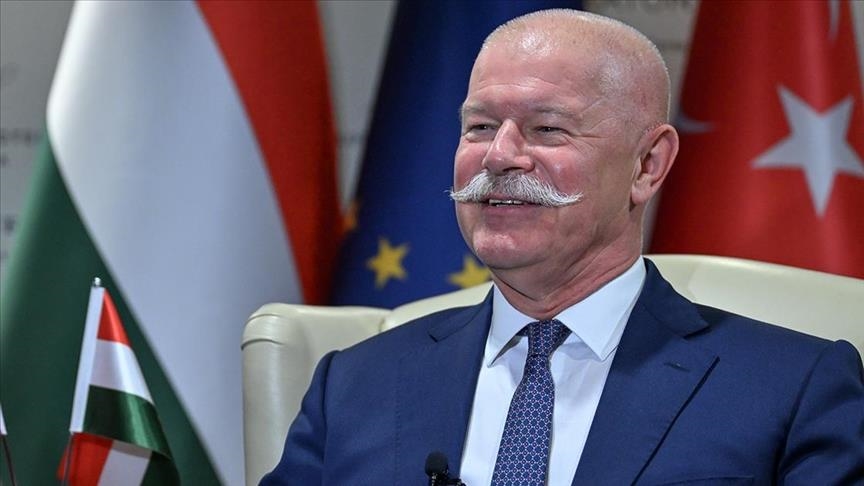
ANKARA
Hungarians consider themselves a Turkic nation coming from Central Asia, and see Türkiye as a "big brother," according to the country’s culture and innovation minister.
“We Hungarians consider ourselves a Turkic nation, coming from Central Asia or even east of Central Asia. We like to think of ourselves as the Westernmost eastern nation, and the easternmost Western nation,” Janos Csak told Anadolu.
“For us Hungarians, Türkiye is like a big brother, a much bigger nation by numbers, very active, very candid and curious, playing a huge geopolitical role in this region,” Csak added.
Stressing that Türkiye is a country that has legs on both sides of the Bosporus, on the European and Asian sides, he said this provides a “very good basis” for cultural, intellectual, and even spiritual relationships.
The minister added that it is in their “vital interest” to understand the world around them, especially as nations like Türkiye and Hungary have faced many difficulties throughout history.
Regarding the diplomatic ties that date back 100 years, he said the two countries' political classes have always had a thorough understanding of each other's problems.
"Friendships are formed through spending time together and getting to know one another. Our plans for this year, when we celebrate the 100th anniversary of diplomatic relations and friendship, include 100 events in Türkiye ranging from classical music to exhibitions, dance, and art exhibitions, as is the case in Hungary," he explained.
Csak said the cultural and political relationship is "excellent" and that they work to keep it that way.
In terms of culture, he said there are similarities in music, the arts, and other fields.
Regarding the ongoing wars in the world, he underlined the importance of maintaining peace, saying, "We consider Türkiye a strategic partner for Hungary."
Concerning the green economy, such as water supply, climate change, and agricultural production issues, he said they have a strong relationship with Türkiye in terms of transporting energy from the Caspian region to Europe.
Regarding demographic change, he said every region of the world is grappling with the effects of modernity, particularly the challenges brought by technology and changing lifestyles.
The gap between the new and old generations is widening, and family relations are deteriorating, he said, citing declining birth rates and family formation as major causes.
Csak emphasized that the cultural heritage and beauty that were considered happiness 100 years ago should be passed down to future generations and that they are working with Turkish authorities on this issue.
He has met with the Turkish minister of family and social services three times already and “we will hold a meeting tomorrow, a conference, where our experts and Turkish experts will share their findings about the current state and potential solutions,” he said, adding, "We're eager to learn from the Turkish experience.”
Hungary has developed a fairly comprehensive system for supporting families, beginning with housing assistance, financial assistance, and even guidance on how to balance private, family, and working lives.
He added that next year will be the year of innovation and science combined.
“Hungary is very well known for its scientific and research capabilities and performance,” he said, adding that his country has received more than one Nobel Prize in the field of science and research.
*Writing by Gozde Bayar
Anadolu Agency website contains only a portion of the news stories offered to subscribers in the AA News Broadcasting System (HAS), and in summarized form. Please contact us for subscription options.







